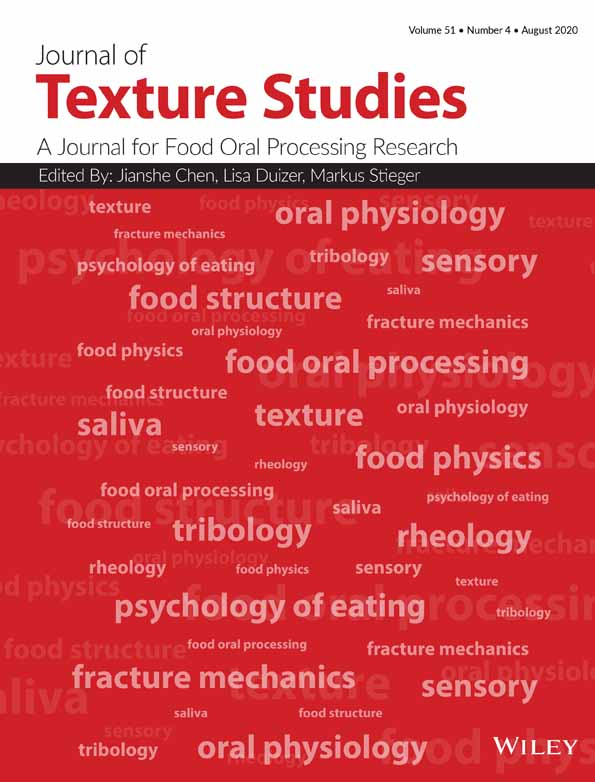Changes in oral processing parameters of three rice varieties
Funding information: General S&T project of Beijing Municipal Commission of Education, Grant/Award Number: KM202010011006; Program of Talents Training Quality and First-class Specialty (municipal level) in Food Science and Engineering Field, Grant/Award Number: PXM2019_014213_000010; BTBU Youth Fund, Grant/Award Number: PXM2019_014213_000007; National Key R&D Program of China, Grant/Award Number: 2017YFD0401200
Abstract
Mastication and saliva addition affects the formation of a bolus, directly playing a key role in people's eating enjoyment. However, the specific changes of oral physiological parameters and bolus moisture content in the oral processing of rice have not been studied in detail. Thus, in the present study, salivary flow rate, salivary secretion, chewing frequency, and bolus moisture content during oral processing of three rice varieties (japonica rice, indica rice, and glutinous rice) were fully investigated. The differences among different rice and changes among different oral processing stages (25%, 50%, 75%, and 100%) were analyzed. Results showed that the swallowing time of glutinous rice was significantly lower than that of japonica and indica rice (p < .05). However, there was no significant difference in the chewing frequency of the three rice varieties throughout the oral processing stages (1.59–1.66 Hz, p > .05). During oral processing, the salivary flow rates for the three kinds of rice decreased significantly (p < .05), from 37.72 ± 4.32 mg/s (0%–25% stage) to 19.83 ± 5.50 mg/s (75%–100% stage). The dry basis moisture content of the bolus increased significantly (p < .05), from 1.53 ± 0.08 (0%) to 1.96 ± 0.02 (100%). In the 75%–100% stage, the amount of saliva secretion for japonica rice was highest, followed by indica rice and glutinous rice (p < .05). At the point of swallowing (100% stage), the dry basis moisture content of all three rice-bolus' was consistent (1.94–1.99, p > .05).




